Get a free trial until June 30, 2026!
New members get access to our science units, hands-on activities, mini-lessons, & more!

Please wait…
This video is having trouble loading. You may have lost your Internet connection.
Step 1: Click to Reload this page
Step 2: Click to
Try our other video player
Step 3: Contact your teacher if trouble persists.
Or,
dismiss this message.
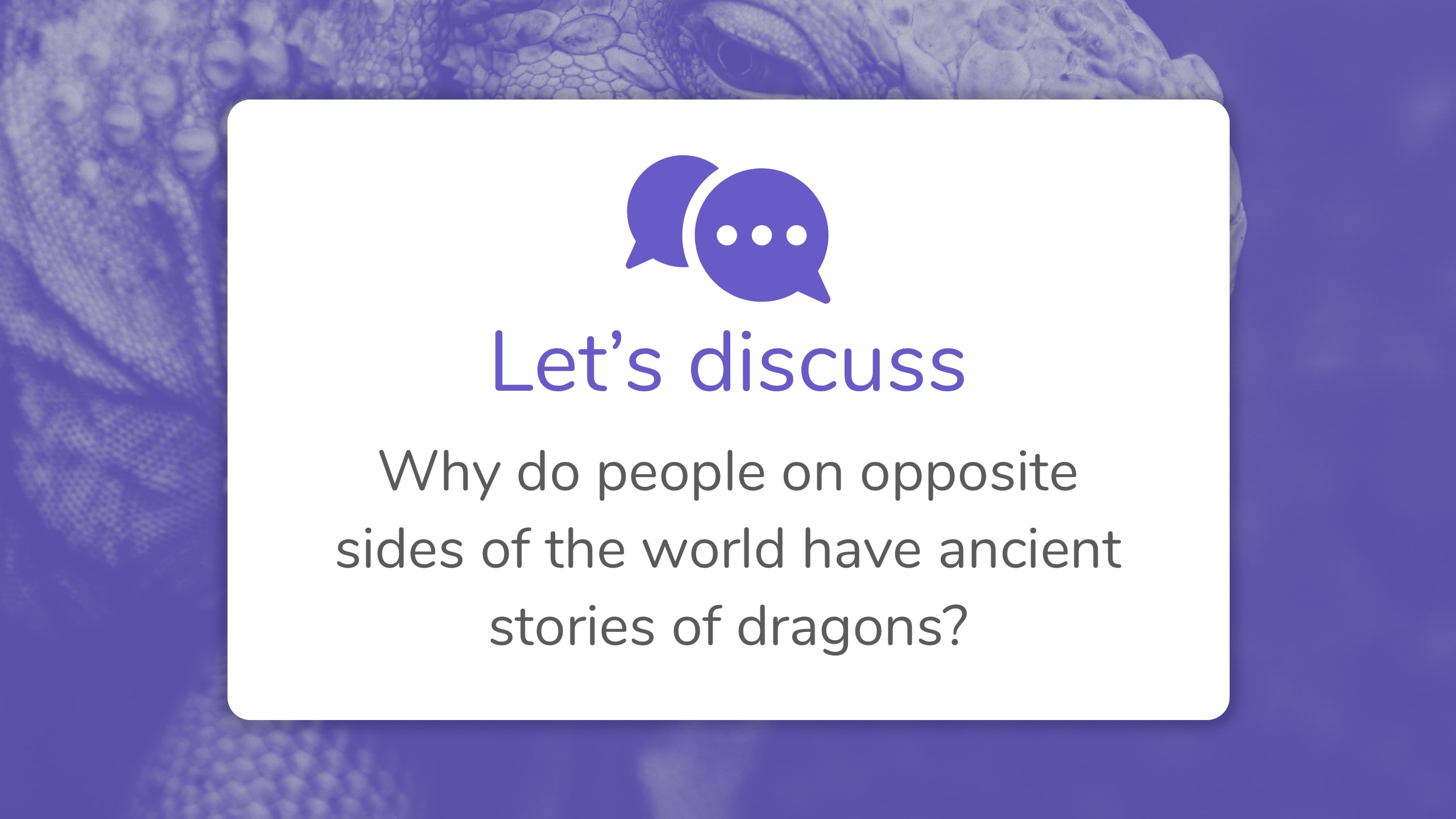

Please wait…
This video is having trouble loading. You may have lost your Internet connection.
Step 1: Click to Reload this page
Step 2: Click to
Try our other video player
Step 3: Contact your teacher if trouble persists.
Or,
dismiss this message.


Please wait…
This video is having trouble loading. You may have lost your Internet connection.
Step 1: Click to Reload this page
Step 2: Click to
Try our other video player
Step 3: Contact your teacher if trouble persists.
Or,
dismiss this message.
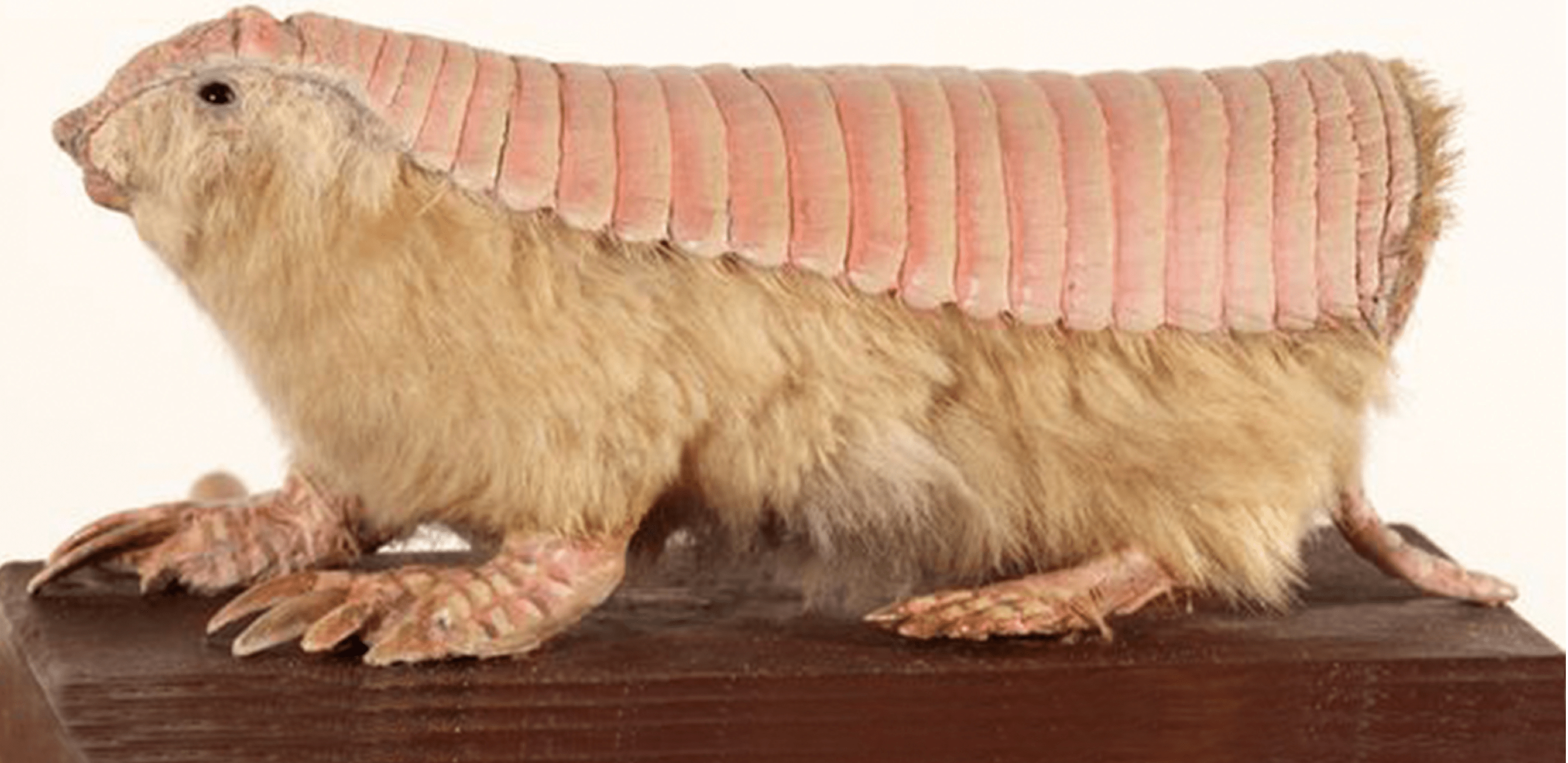
Whoa, check this out! This creature is a type of armadillo.
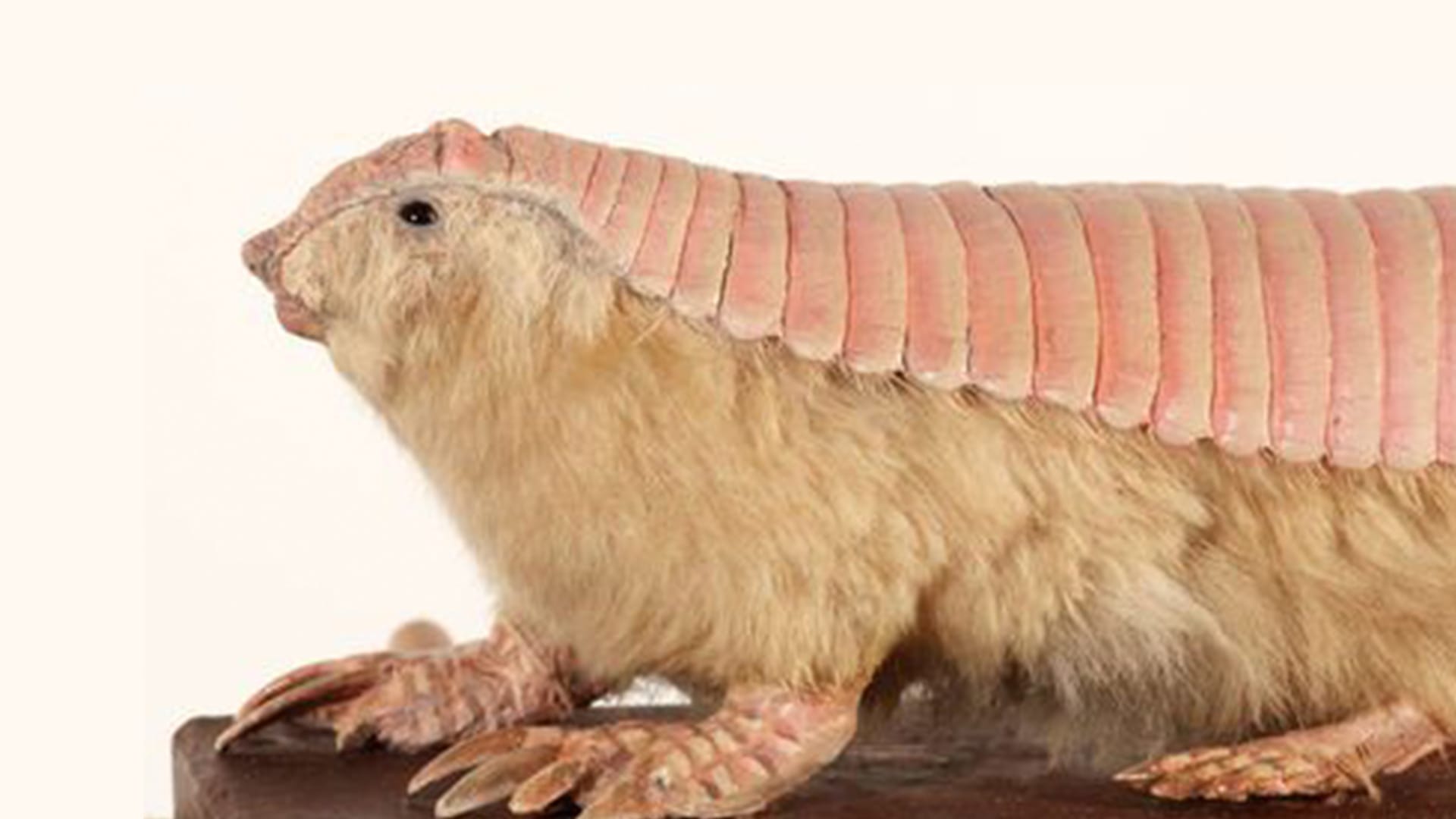
Why do you think it has those scales on its back?!

Please wait…
This video is having trouble loading. You may have lost your Internet connection.
Step 1: Click to Reload this page
Step 2: Click to
Try our other video player
Step 3: Contact your teacher if trouble persists.
Or,
dismiss this message.
Some armadillos curl up into a ball to defend
themselves. Those scales act like a shield!

Please wait…
This video is having trouble loading. You may have lost your Internet connection.
Step 1: Click to Reload this page
Step 2: Click to
Try our other video player
Step 3: Contact your teacher if trouble persists.
Or,
dismiss this message.
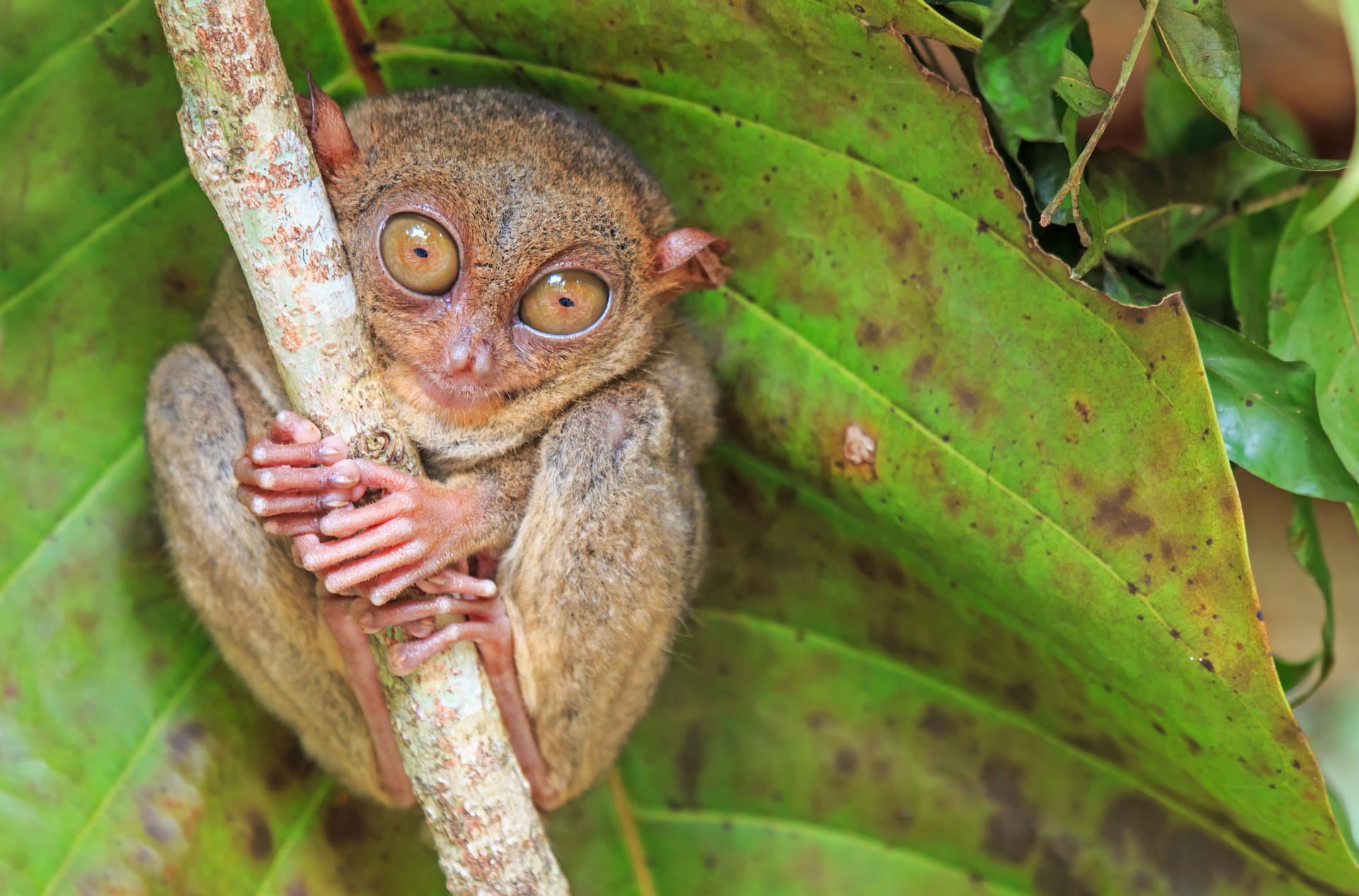
This is called a tarsier. It’s a primate, the same
family that includes monkeys.

Please wait…
This video is having trouble loading. You may have lost your Internet connection.
Step 1: Click to Reload this page
Step 2: Click to
Try our other video player
Step 3: Contact your teacher if trouble persists.
Or,
dismiss this message.
Why do you think its eyes are so big?!
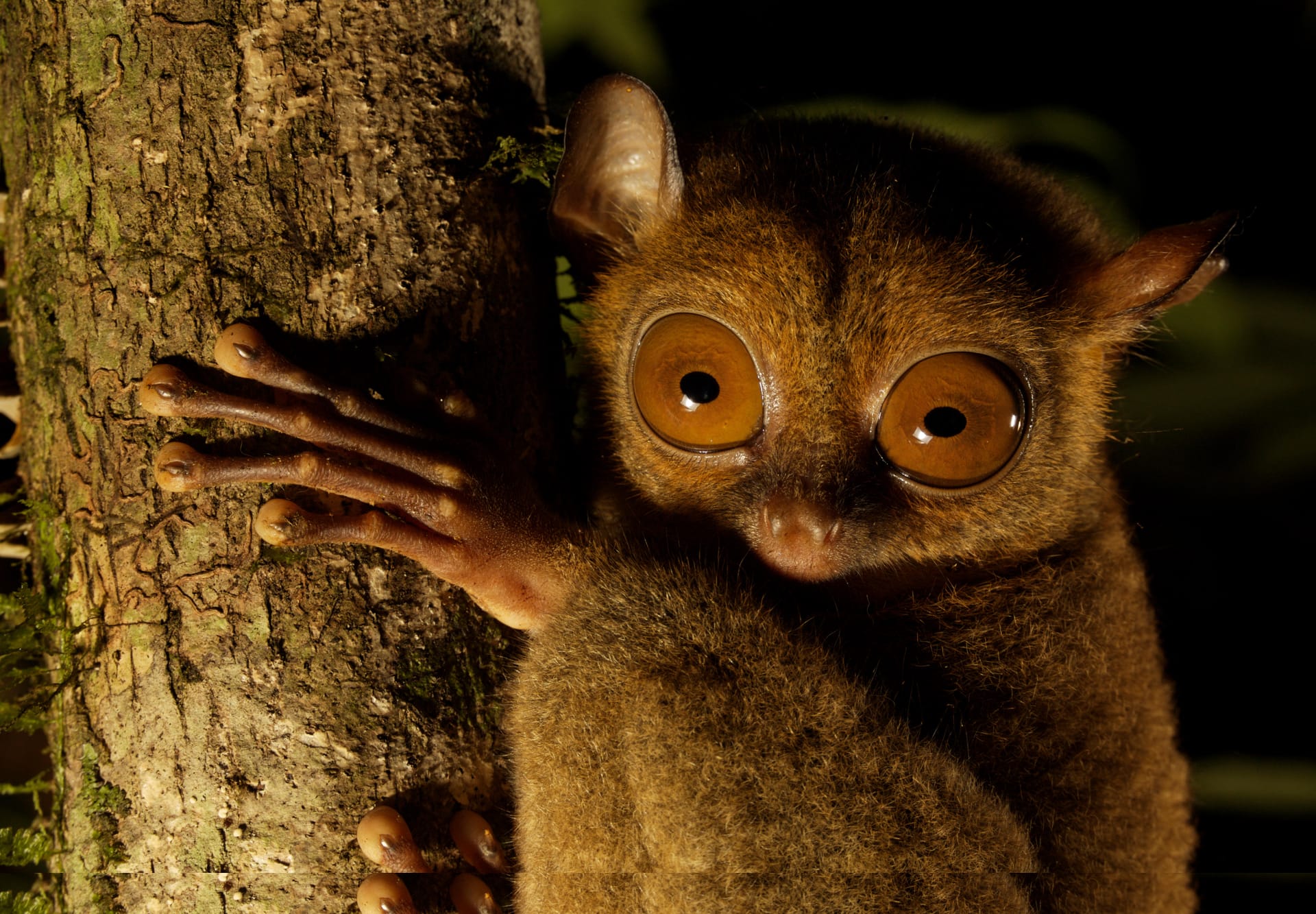
Tarsiers are nocturnal—they only come out at night.
Bigger eyes help them see better in the dark!

Please wait…
This video is having trouble loading. You may have lost your Internet connection.
Step 1: Click to Reload this page
Step 2: Click to
Try our other video player
Step 3: Contact your teacher if trouble persists.
Or,
dismiss this message.
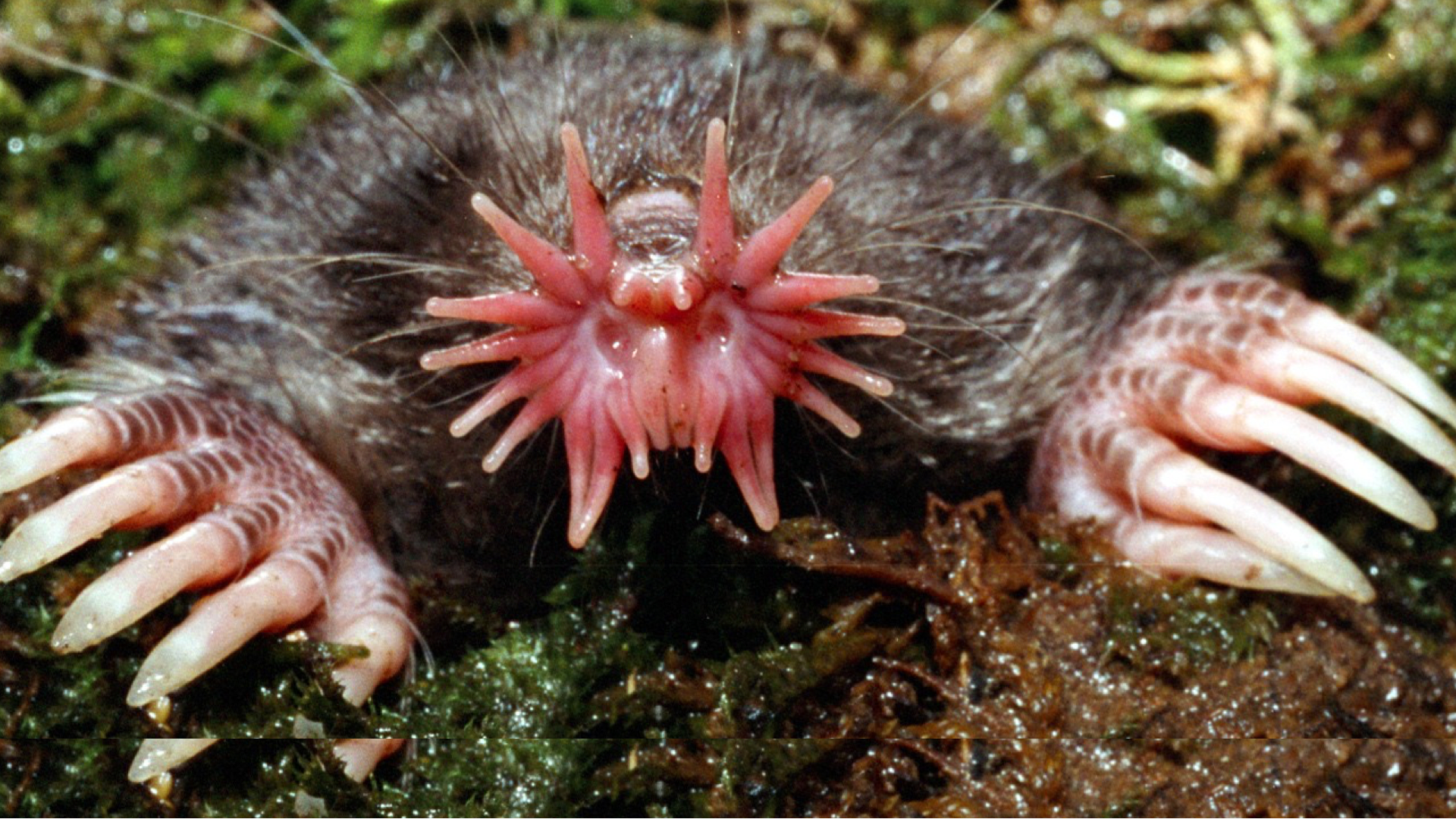
Believe it or not, this is real!
This is called a star-nosed mole.

The star-nosed mole has these strange tentacles
on its snout. What do you think it uses them for?
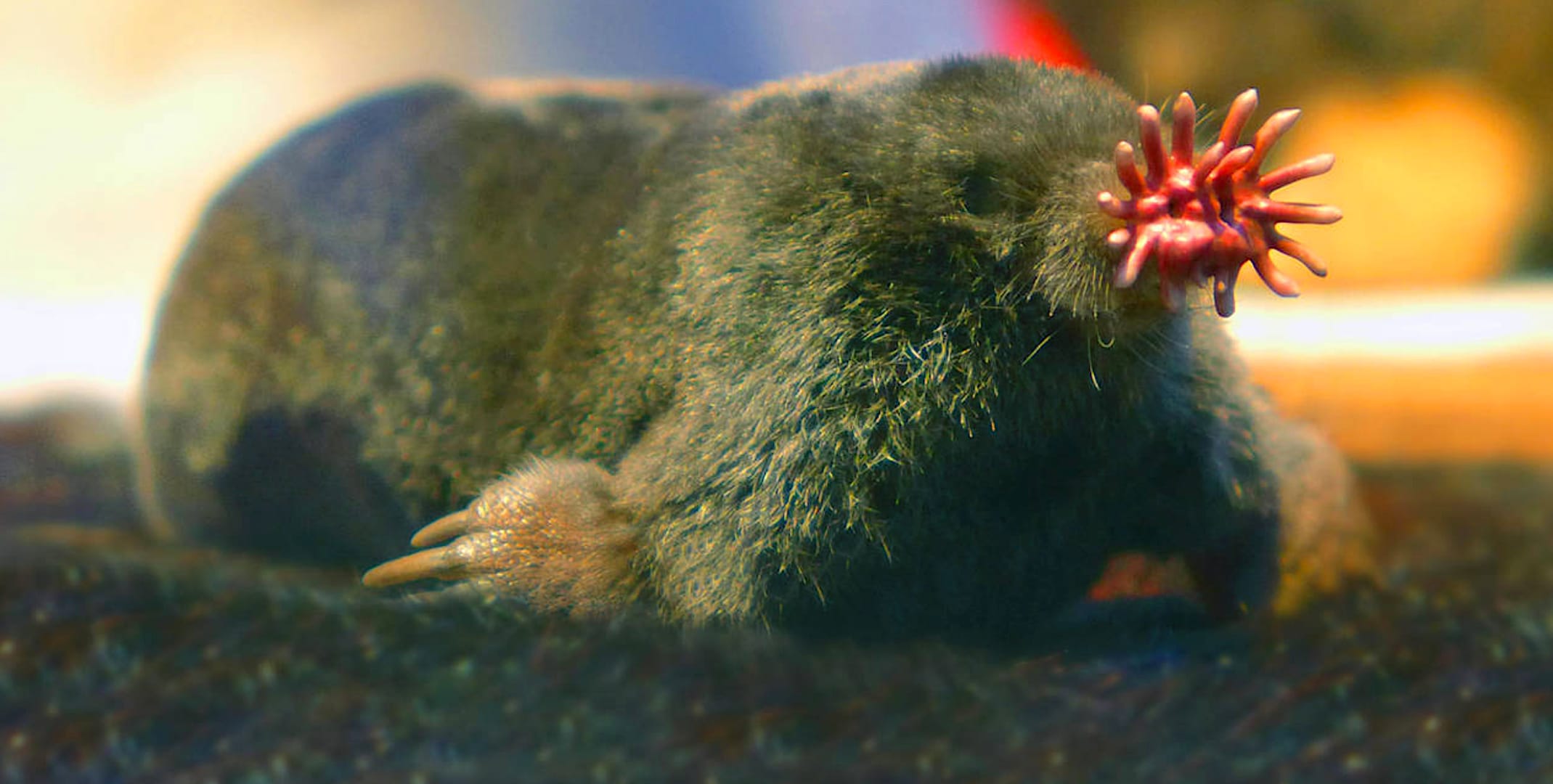
Moles live underground and have poor eyesight.
This mole uses these to feel around in the dark!

Please wait…
This video is having trouble loading. You may have lost your Internet connection.
Step 1: Click to Reload this page
Step 2: Click to
Try our other video player
Step 3: Contact your teacher if trouble persists.
Or,
dismiss this message.
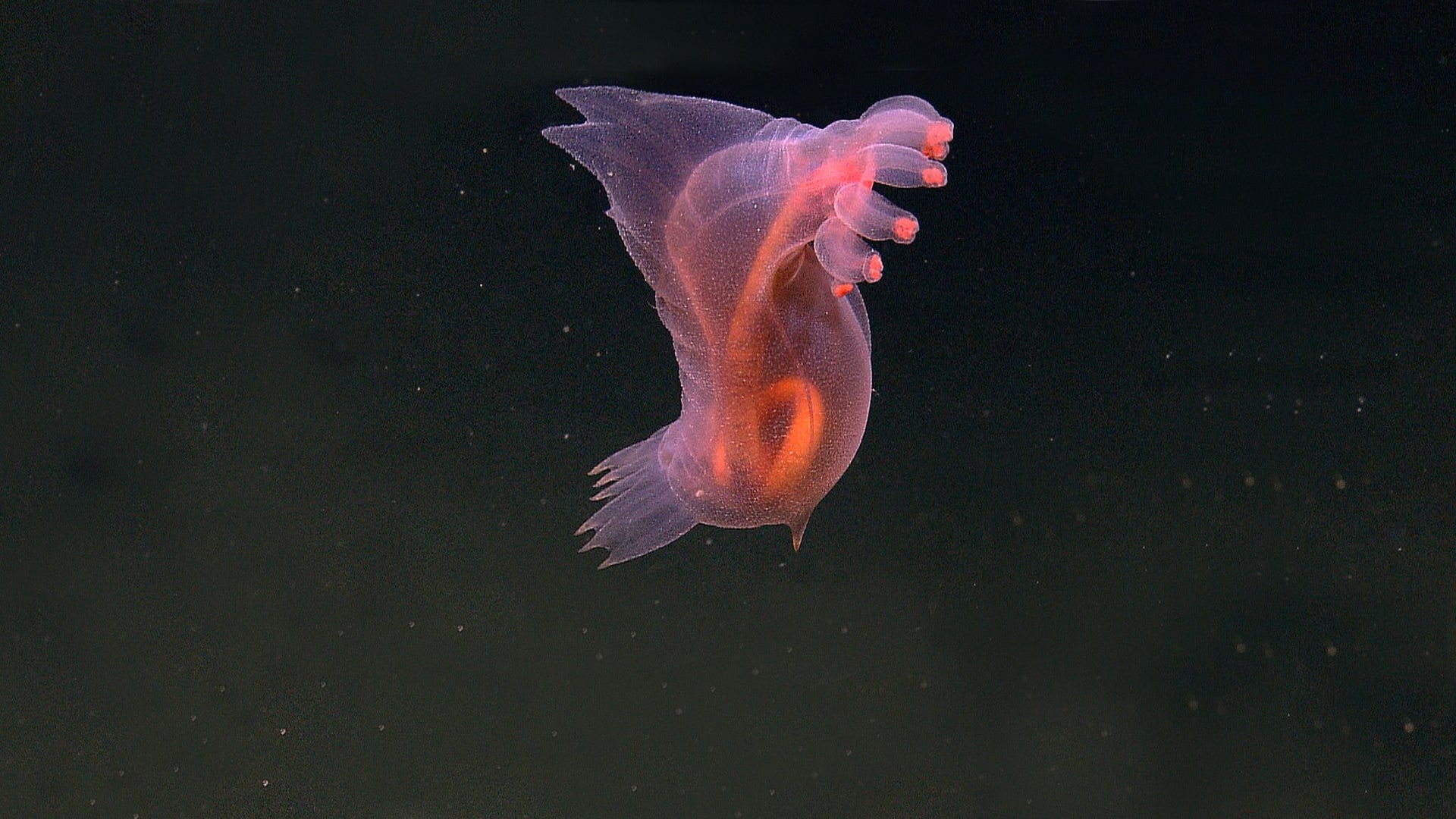
Scientists keep discovering new animals in the
deep sea. This one we discovered a few years ago!

Please wait…
This video is having trouble loading. You may have lost your Internet connection.
Step 1: Click to Reload this page
Step 2: Click to
Try our other video player
Step 3: Contact your teacher if trouble persists.
Or,
dismiss this message.
Some people call it the “headless chicken fish”—
but it’s not actually a fish. Can you guess what it is?

Please wait…
This video is having trouble loading. You may have lost your Internet connection.
Step 1: Click to Reload this page
Step 2: Click to
Try our other video player
Step 3: Contact your teacher if trouble persists.
Or,
dismiss this message.
It’s actually a type of animal called a sea cucumber.
They’re related to sea stars (starfish)!

Please wait…
This video is having trouble loading. You may have lost your Internet connection.
Step 1: Click to Reload this page
Step 2: Click to
Try our other video player
Step 3: Contact your teacher if trouble persists.
Or,
dismiss this message.

Here’s another one discovered recently on a
deep sea dive. Can you guess its name?
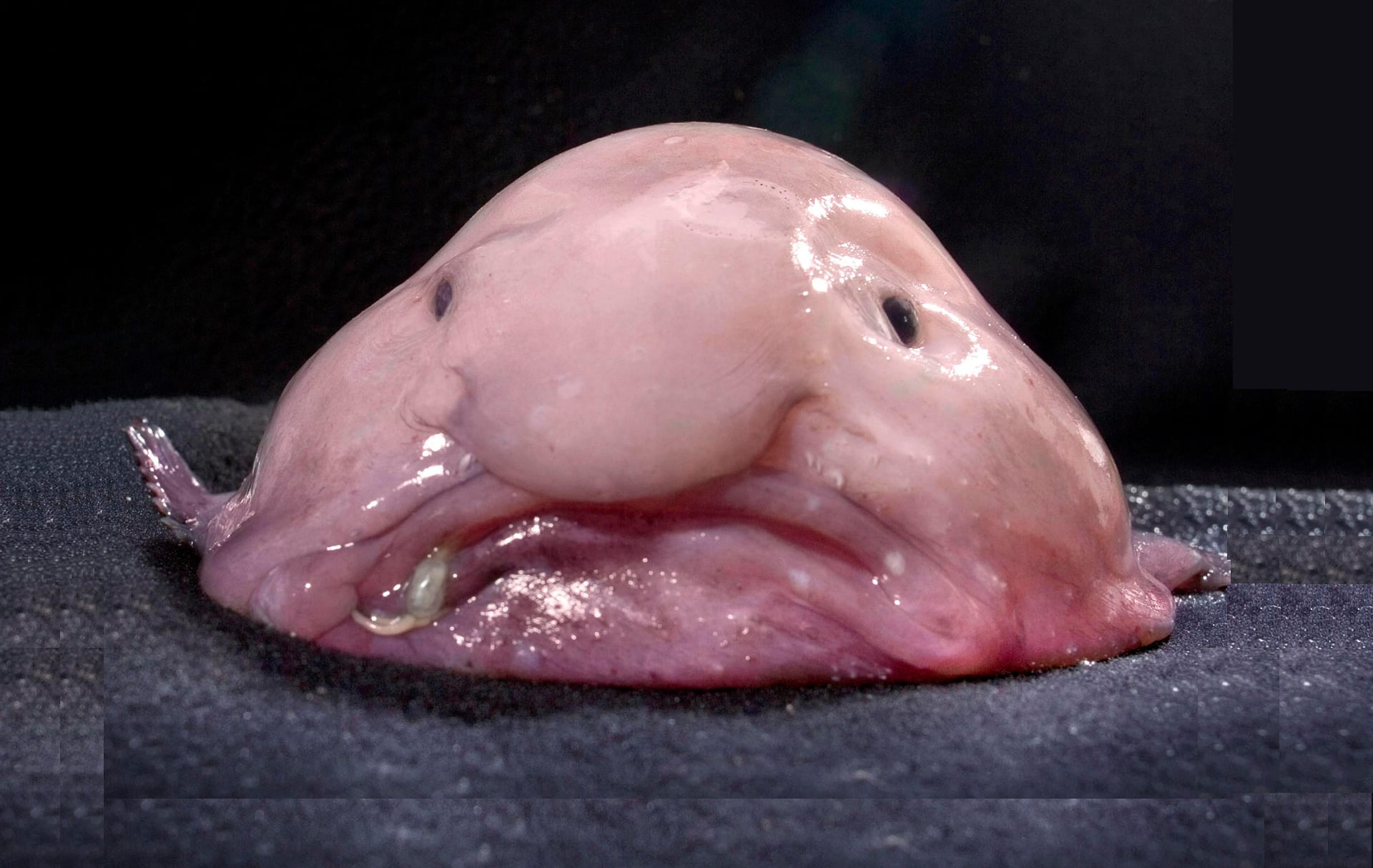
It’s called the blobfish! They live at depths of
1 km (½ mile) along the bottom of the ocean.


Please wait…
This video is having trouble loading. You may have lost your Internet connection.
Step 1: Click to Reload this page
Step 2: Click to
Try our other video player
Step 3: Contact your teacher if trouble persists.
Or,
dismiss this message.
Voting for this episode is now closed. Would you like to vote on the most recent poll?

-
How do stitches work?
-Jose, 2nd Grade
-
Why do people write in cursive?
-Kingston, 4th Grade
-
Why do cars have seat belts?
-Leighla, 1st Grade






